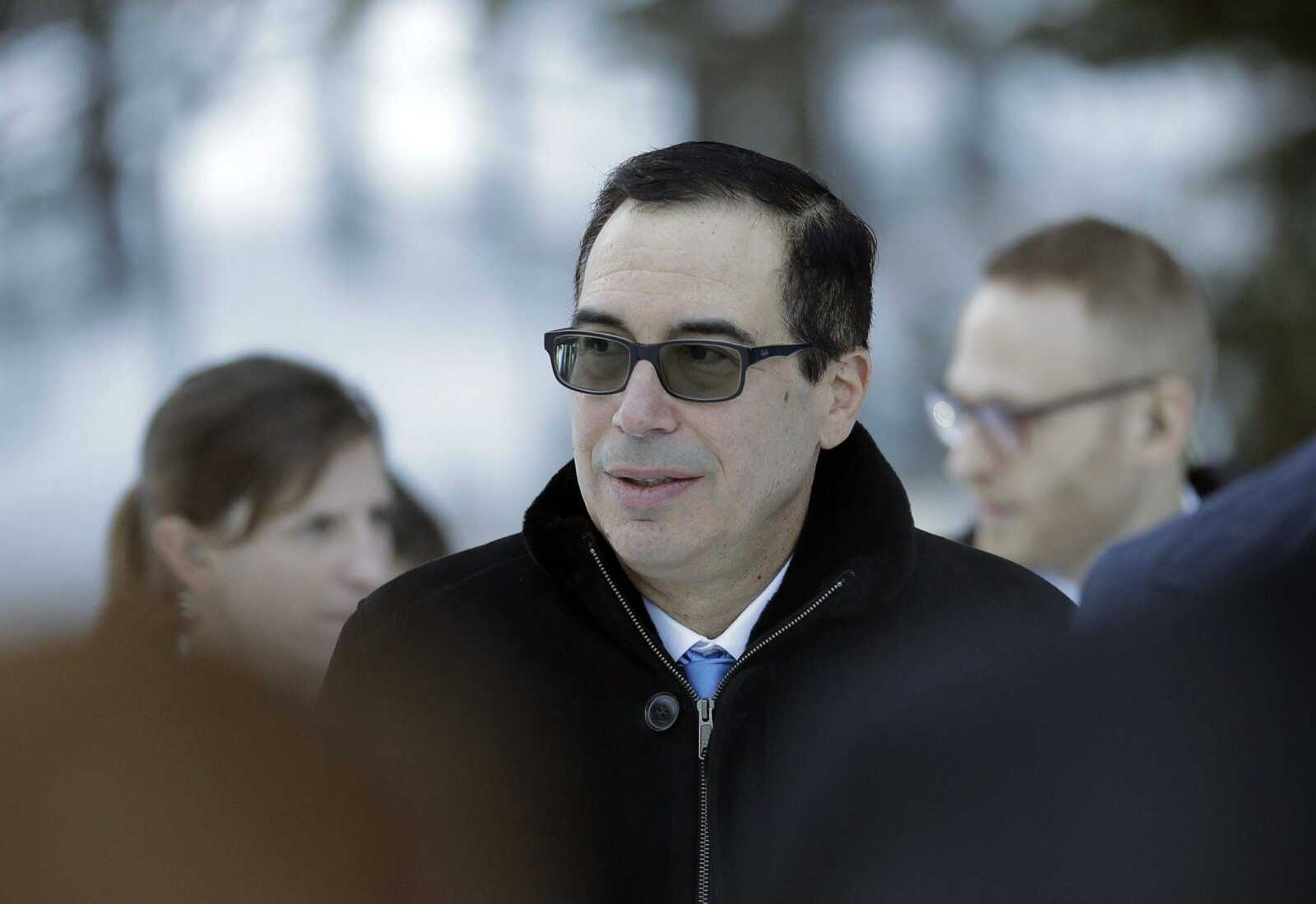Q&A: Why Mnuchin's remarks about US dollar sparked concerns
WASHINGTON -- Treasury Secretary Steven Mnuchin appears to have learned a lesson many of his predecessors also came to recognize: A Treasury secretary must tread delicately when discussing the dollar. When Mnuchin suggested Wednesday at a global economic forum in Davos, Switzerland, a weak dollar would benefit the United States, the U.S. ...
WASHINGTON -- Treasury Secretary Steven Mnuchin appears to have learned a lesson many of his predecessors also came to recognize: A Treasury secretary must tread delicately when discussing the dollar.
When Mnuchin suggested Wednesday at a global economic forum in Davos, Switzerland, a weak dollar would benefit the United States, the U.S. currency fell in value and sparked concerns in global markets. A day later, Mnuchin tried to soften his comments. So did President Donald Trump, who stressed "ultimately, I want to see a strong dollar."
The two-day kerfuffle was a sign of how sensitive an issue the dollar's value can be. Here are some questions and answers about the dollar and its relationship to the U.S. economy:
Q: What's been the policy of recent administrations concerning the dollar?
A: In 1995, when Robert Rubin became Treasury secretary in the Clinton administration, he adopted the approach of always affirming a strong dollar is in the best interests of the United States. From his years leading Goldman Sachs, Rubin knew currency traders were alert for any variations in an administration's views on the dollar and were ready to dump dollars at the first sign of diminishing support for the U.S. currency.
A lower-valued dollar can be worrisome, in part because it makes U.S. imports costlier and so can accelerate inflation, sometimes to worrisome levels.
Rubin's mantra worked so well it was adopted, usually word for word, by the six Treasury secretaries who followed him, in both Democratic and Republican administrations.
When Mnuchin deviated to suggest there were advantages for the United States in having a weaker dollar, the market reaction was swift. The currency fell to a three-year low against the euro and sank against the Japanese yen.
Q: What are the benefits of a weak dollar?
A: A weak dollar means a shirt made in China and sold at Walmart will be more expensive for American consumers. In that way, it gives a competitive advantage to American shirt makers. In addition, a weak dollar makes an American good exported and sold overseas more affordable for foreigners.
Q: What about the drawbacks of a weak dollar?
A: By making foreign goods more expensive in the United States, it raises the risk of high inflation. It raises, for example, the cost of foreign-made products, such as auto parts U.S. manufacturers need to produce goods. U.S. automakers depend heavily on foreign-made parts.
A falling dollar also makes foreign investment in dollar-denominated assets less attractive. So the sale of U.S. stocks and bonds to foreign investors can suffer, which can be a serious problem at a time when the budget deficit is rising sharply and is expected to once again approach and exceed $1 trillion annually in coming years. Of the government's $20.5 trillion in debt, $5.7 trillion in is government trust funds such as Social Security. The rest, $14.8 trillion, is held by investors. And of the debt held by investors, more than 40 percent is held by foreigners, with the largest amounts in the hands of China and Japan.
Q: Is it possible Mnuchin's comments were inadvertent and not the start of any concerted administration effort to reduce the dollar's value?
A: Yes. In addition to Mnuchin's own clarifying comments Thursday, Trump in an interview with CNBC said he thought Mnuchin's comments had been taken out of context.
Trump said with the U.S. economy doing well, "the dollar is going to get stronger and stronger, and ultimately I want to see a strong dollar."
Connect with the Southeast Missourian Newsroom:
For corrections to this story or other insights for the editor, click here. To submit a letter to the editor, click here. To learn about the Southeast Missourian’s AI Policy, click here.









